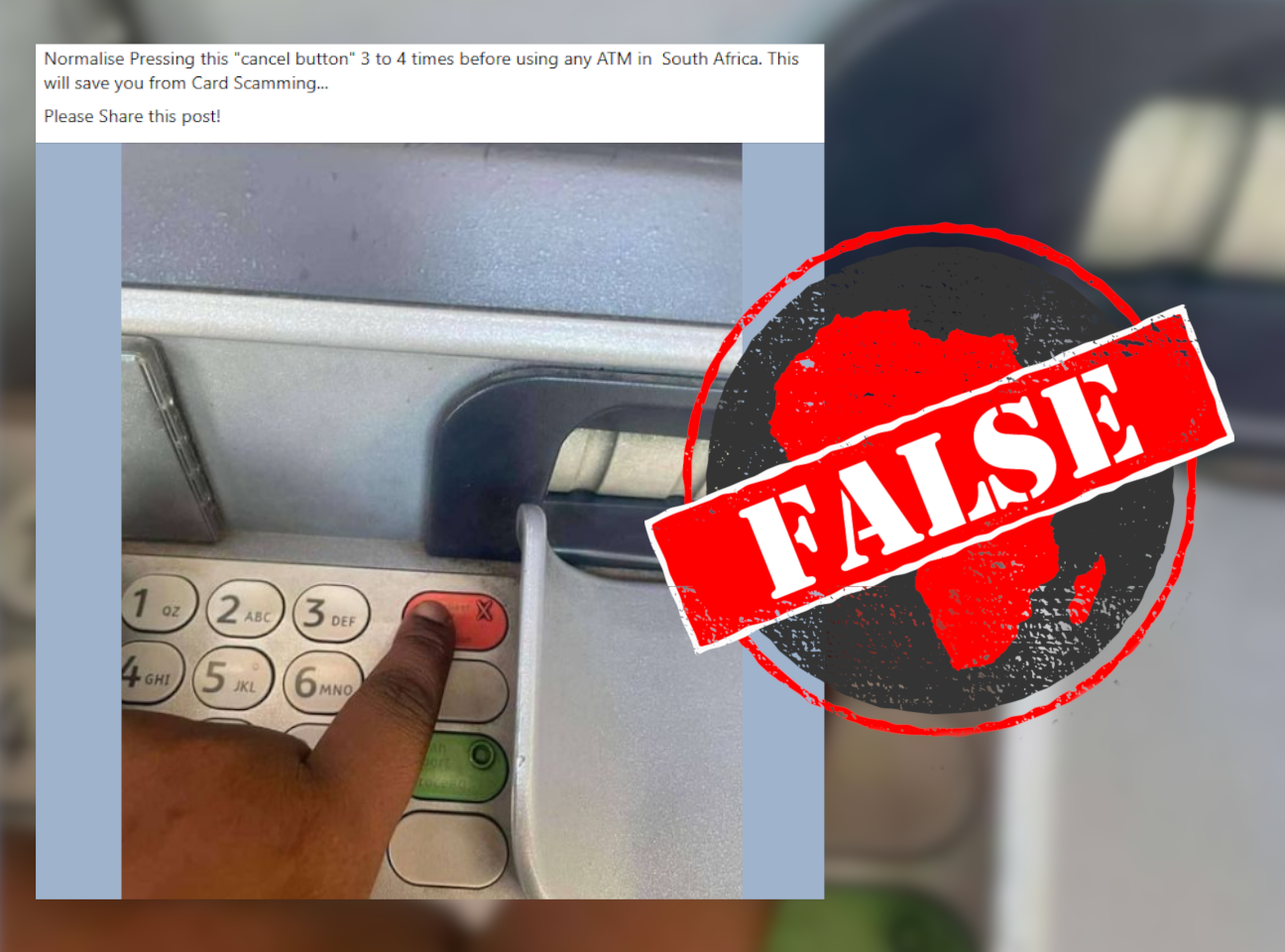IN SHORT: The claim that pressing the “cancel” button on an ATM up to four times to prevent card fraud has resurfaced online. But it’s still incorrect.
A Facebook post circulating in South Africa in January 2023 advises consumers to press the “cancel button 3 to 4 times before using any ATM in South Africa” to prevent card fraud.
A number of comments thanked the poster for the tip. The same claim has been published here, here and here, racking up hundreds of views.
In 2019, Africa Check looked into a similar claim shared in Kenya. Then Fidelis Muia, director of technical services at the Kenya Bankers Association, told us that the sole purpose of the cancel button on an automated teller machine (ATM) was to stop transactions in progress. He said it would not prevent anyone from "stealing your PIN".
Is the situation any different with ATMs in South Africa? We checked.

Common types of card fraud in South Africa
The South African Banking Risk Information Centre (Sabric) is a financial crime risk information centre set up by several of the country’s banks to help consumers protect themselves from bank-related crimes.
According to Sabric, the most common types of ATM card fraud were:
- Card swapping, where a victim's card was swapped out with another that looked just like theirs at an ATM. This often happened when fraudsters offered to assist victims with a transaction.
- Card skimming, which involved fraudsters tampering with ATMs by placing card readers and cameras in and around the ATM in order to steal victims’ pins and card details.
- Shoulder surfing, which happened when a fraudster stood close enough to see a victim insert their pin at an ATM. As a precaution, many banks encourage consumers to hide the ATM keypad from view when typing in their pin.
Cancel button on South Africa’s ATMs do not stop card fraud
Nischal Mewalall, chief executive officer at Sabric, told Africa Check that the claim was false.
He'd seen the claim circulating via SMS and over WhatsApp for the past two years, he said.
The function of the ATM’s cancel button was to stop a transaction before it was completed, so that your card was returned. Pressing it before a card was inserted into the machine therefore had no effect.
“The best way to prevent becoming a victim at an ATM is to refuse offers of assistance from anyone at the ATM, and to cover your hand when entering your PIN,” Mewalall said.
Republish our content for free
For publishers: what to do if your post is rated false
A fact-checker has rated your Facebook or Instagram post as “false”, “altered”, “partly false” or “missing context”. This could have serious consequences. What do you do?
Click on our guide for the steps you should follow.
Publishers guideAfrica Check teams up with Facebook
Africa Check is a partner in Meta's third-party fact-checking programme to help stop the spread of false information on social media.
The content we rate as “false” will be downgraded on Facebook and Instagram. This means fewer people will see it.
You can also help identify false information on Facebook. This guide explains how.


Add new comment